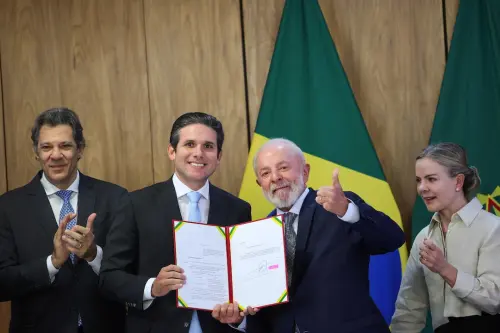Brazil's government revealed a long-awaited plan on Tuesday to exempt individuals earning up to 5,000 reais ($881.27) per month from income tax. This exemption will be funded by imposing new levies on high earners and on profits and dividends sent abroad. The proposal, originally introduced last year, faced initial fiscal concerns but is now viewed as crucial for President Luiz Inacio Lula da Silva to regain popularity. It is part of a series of measures aimed at boosting disposable income for Brazil's middle class.
Economic Policy Secretary Guilherme Mello emphasized that "Improvements in income distribution can boost growth potential without inflationary pressures." The government asserts that this tax exemption proposal will have a neutral fiscal impact and aims to promote tax justice.
The bill must be approved by Congress this year to take effect in 2026. Lawmakers have signaled a swift analysis, but potential amendments are likely, particularly from those vested in opposing the interests of the wealthy who have substantial influence in Congress.
The bill includes a 10% withholding tax on profits and dividends sent overseas, with expected annual revenue increases of 8.9 billion reais. Foreign investors could potentially be fully reimbursed for this tax under certain conditions.
To offset the tax exemption for the middle class, the government plans to introduce a minimum effective tax on high-income Brazilians. This tax would gradually increase, capping at 10% for gross income exceeding 1.2 million reais per year and is estimated to raise revenues by 25.22 billion reais annually.
The government aims to raise the threshold for income tax exemptions from 2,824 reais per month to 3,036 reais this year, reflecting an adjustment to the federal minimum wage.
While Finance Minister Fernando Haddad described the bill as "balanced" in fiscal terms, there is room for negotiation in Congress according to Finance Ministry Executive Secretary Dario Durigan.
The Brazilian real exhibited minimal volatility in response to the announcement, suggesting that investors did not immediately react to the proposed measures.
